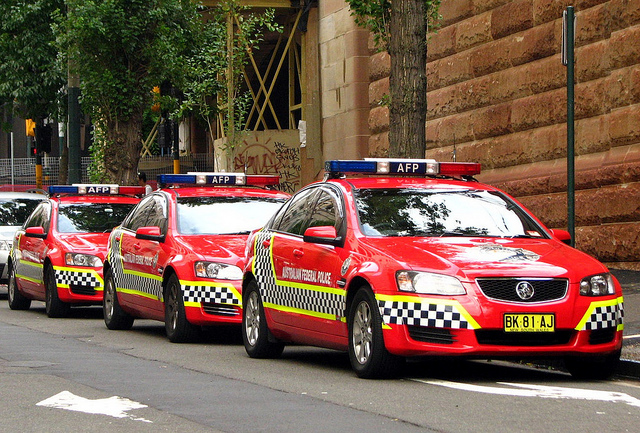Law enforcement and the Home Affairs portfolio

The media commentary that followed Prime Minister Malcolm Turnbull’s 18 July Home Affairs portfolio announcement (see here, here and here) almost exclusively concentrated on Australia’s counterterrorism (CT) arrangements. Despite the announcement, Australia’s continued success in disrupting terror plots makes it unlikely that the new Home Affairs minister will be crafting drastic changes to CT arrangements. But there’s so much more to home affairs and domestic security than CT.
Australia’s strategies and policies for dealing with transnational serious and organised crime and illicit drugs have nothing like the same level of coordination or success as those in the CT domain. That becomes clear when you consider the following:
- In June 2016 the Australian Criminal Intelligence Commission (ACIC) estimated that serious and organised crime cost Australia $36 billion in 2013–14.
- Australia’s current national drug strategy is now two years out of date—and the replacement National Drug Strategy 2016–2025 is still only in draft.
- The ACIC’s latest Illicit Drug Data Report found that, for the most part, illicit drug purity is unchanged and that drugs remain easy to obtain and, in some cases, their street price is dropping not increasing.
- Australia’s National Organised Crime Response Plan lacks relevance to law enforcement decision-making at operational and tactical levels.
While our law enforcement agencies, including the Australian Federal Police (AFP) and the Australian Border Force (ABF), have achieved outstanding operational results, the fact remains that the government’s policy intentions of reducing the availability of illicit drugs and the impact of organised crime aren’t being achieved. That can almost certainly be attributed to shortcomings in policy and strategy settings rather than operational efforts.
It’s way too early to definitively predict what changes will be brought about by the new Home Affairs portfolio arrangements. Importantly, for the first time, a senior minister will represent law enforcement issues in Cabinet and on the National Security Committee. That’s a great outcome. When it comes to Commonwealth law enforcement, the AFP, ABF and ACIC can expect some big strategy and policy changes to occur.
It would make good policy sense for the Home Affairs minister to undertake a substantial review of the Commonwealth law enforcement agencies’ organisational frameworks, including their roles and responsibilities. If the implementation of the Home Affairs portfolio is to result in any efficiencies, especially cost savings, they’re likely to be found there.
For example, the ACIC has three separate task forces for fusing and sharing intelligence on organised crime: the Australian Gangs Intelligence Coordination Centre, the National Criminal Intelligence Fusion Centre and National Taskforce Morpheus. The Department of Immigration and Border Protection has the Border Intelligence Fusion Centre. And the AFP has remodeled its intelligence function to enhance the ‘identification of convergences and vulnerabilities in criminal activity across investigations to streamline targeting of organised criminals’. The new Home Affairs approach could reshape those various efforts into a single centre, or perhaps even merge the functionality into the highly successful CT-focused National Threat Assessment Centre.
As there’s never been a Commonwealth law enforcement white paper, Minister Dutton may also choose to conduct a more substantive review of each agency’s long-held strategy and policy assumptions. Such a process could consider whether the Home Affairs portfolio arrangements might allow for more substantial structural changes; for example, could the roles of the ACIC be split between the minister’s office, ASIO, the AFP and the ABF?
It’s also likely that the minister’s office will take a greater role in coordinating Australia’s national illicit drug supply reduction strategy. For the AFP, ACIC and ABF, that’s likely to result in more granular guidance in terms of national priorities. I’ve argued for some time (see here and here) that Australia’s efforts in this area could be well served by a focus on disrupting illicit drug supply chains rather than on seizures and arrests. That said, illicit drug seizures and arrests will still have significant political value for the Home Affairs portfolio, especially during senate estimates.
The National Organised Crime Response Plan 2015–2018 articulates Australia’s national response to serious and organised crime. When it comes to producing the next plan, the Home Affairs minister may need to consider whether the portfolio’s operational agencies need more detailed guidance on higher level strategy and its implementation. For the ABF, AFP and ACIC, that could mean further restrictions on the capacity to go it alone in terms of strategy and policy decisions.
International engagement, including cooperation and capacity development, has become a central pillar in AFP, ACIC and ABF strategies. To date, each agency has operated its own international network and engagement strategy. While these have often been mutually supportive, it hasn’t always been clear how they combine together to support the national interest. The Home Affairs portfolio could take responsibility for developing a more collaborative and integrated national law enforcement international engagement strategy.
Arguably, a lot of the most dramatic changes that the Home Affairs portfolio brings about will relate to Commonwealth law enforcement structures, policies and strategies. In making such changes, Minister Dutton ought to be mindful of the importance of independence and accountability in law enforcement.